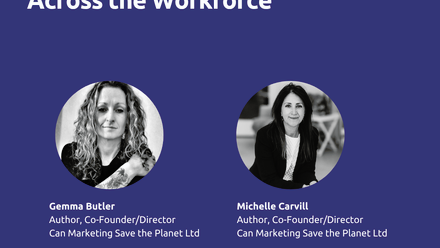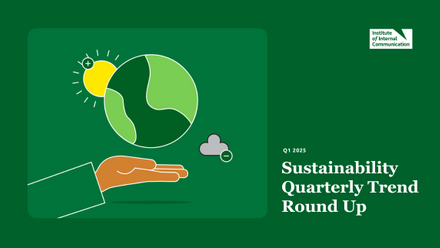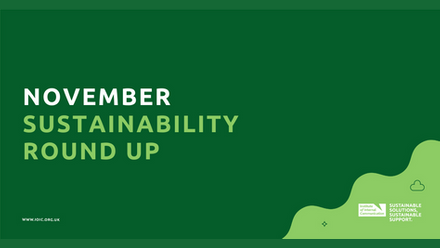At the IoIC, we believe everyone has a moral imperative to reduce consumption and carbon emissions, to protect our planet for future generations.
We also believe there’s a huge opportunity for internal communicators to kick-start and facilitate carbon conversations at work, engaging as many people as possible in the journey towards net-zero business.
With the above in mind and continuing our ongoing roundup of sustainability news, here are some developments that have caught our eye this month.
Environmental sustainability
There seems to be little appetite for many of us to wean ourselves of air travel any time soon. IATA reports that international traffic grew 69% in the year to March 2023.
The aviation sector accounts for some 3% of global CO2 emissions, although due to the altitude at which fossil fuel emissions are released, its overall contribution to the climate crisis is estimated to be three times that amount.
It was refreshing to read, therefore, that green energy tycoon Dale Vince plans to launch the UK’s first electric airline. Ecojet, styled as a “flag carrier for green Britain”, will launch in early 2024, with a 19-seater plane travelling on an Edinburgh-Southampton route.
The planes will run on kerosene-based fuel for the first year, before being retrofitted with engines that convert green hydrogen into electricity. Plant-based meals will be served on-board by staff in environmentally friendly uniforms.
We think this an interesting move that could prove that even the most polluting industries can do their bit to decarbonise – as can those of us who continue to use them for work or leisure for the time being.
Community sustainability
In a month where temperature records are being smashed across Europe, Asia and North America, it’s fair to say that extreme weather events are becoming the new normal.
So, it can feel pretty frustrating to see the climate crisis being dragged into UK party politics for supposed short-term gains – and even being exploited in concocted culture wars.
Polls repeatedly show the UK population is worried about the existential crisis the world’s facing – three quarters of us are worried about it – and is in fact quite sympathetic to the need to adapt our lifestyles to help counter the worst excesses of an over-heating planet.
Senior figures from business, the scientific community and across the political divide have warned the leaders of the UK’s two main parties that any watering down of climate policies would be deeply unpopular with voters, set back the international race to net zero and damage Britain’s green reputation.
Given the gravity of the crisis we face, this also feels like a dereliction of the duty of care politicians should have for the communities they represent.
Organisational sustainability
In recent years, we’ve witnessed a downward trend in terms of the marketing profession’s understanding of sustainability issues.
Increasingly, marketing teams in organisation feel ill-equipped to acquire a strong enough grasp of environmental matters. Given the complexity of the subject and its constantly evolving trajectory, no huge surprise perhaps.
But this scenario presents significant organisational and economic risks and challenges, so there’s clearly an opportunity here for the IC community to step up and take the lead on educating colleagues at all levels of our organisations, and try to reverse any sense of powerlessness in a rapidly changing world.
Personal sustainability
We’ve been reading more and more about the term ‘solastalgia’, which is a form of emotional or existential distress caused by the climate crisis.
This ecological or climate grief refers to the sense of loss that arises from experiencing or learning about environmental destruction or climate change.
Things such as the loss of biodiversity, or of inanimate environmental features such as sea ice, landscapes or historic heritage by natural and man-made events can add to these negative psychological responses. This article sums up its author’s fear and sense of helplessness when confronted by news about the harm being done to the planet.
As IC professionals operating in a complex world, we need to tune into the fact that climate grief is very much real and among us – and just one of many potential stress factors that could be weighing on our colleague’s everyday lives.
Economic sustainability
Climate litigation is becoming an increasingly popular method for eco-activists promoting their interests in relation to sustainability issues – and the legal sector is reporting a rise in the trend of greenwashing or "green sheen” litigation this year.
The suing of companies over their claimed sustainability credentials is a burgeoning area of the law that should have organisations paying attention.
While groups like Just Stop Oil break the law to get their message across, others are clearly using it to their advantage.
As IC professionals, it’s incumbent on us to be live to this and help bring our colleagues along with us on the journey to greater economic and organisational sustainability. After all, if our companies’ external communication output contains misleading claims about our green credentials, that could ultimately be costly financially and reputationally.




